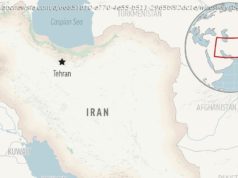After the breakdown of talks between President Trump and Kim Jong-un, Japan and South Korea are trying to figure out the consequences.
SEOUL, South Korea — The abrupt breakdown of summit talks between President Trump and North Korea’s leader, Kim Jong-un, has confounded America’s two largest allies in Asia, but for different reasons.
In South Korea, President Moon Jae-in had been poised to ramp up economic ties with the North if a sanctions-lifting deal had been brokered in Hanoi, the Vietnamese capital.
In Japan, on the other hand, there was relief on Friday, a day after the talks broke down. Tokyo had feared an agreement between Washington and Pyongyang could have left Japan vulnerable to missile attacks by North Korea.
Both Japan and South Korea have now been left to contemplate the fallout from the failed talks, which left North Korea in possession of nuclear weapons. The biggest risk to the region is a resumption by Mr. Kim of nuclear and missile tests to reassert his leverage.
Losing face might prove a blow for Mr. Kim, who cultivates the image of a peerless leader in his totalitarian homeland.
Lee Byong-chul, a senior fellow at the Institute for Peace and Cooperation in Seoul, the South Korean capital, said Mr. Trump might be content with a freeze on North Korean weapons tests. “But I wonder how long the moratorium will last,” he added.
As Mr. Trump left Hanoi aboard Air Force One on Thursday, the path forward was unclear.
At a news conference on Thursday, Mr. Trump said that his relationship with Mr. Kim remained “very friendly” and that he intended to continue negotiations at a measured pace. But during a surprise late-night news conference in Hanoi, Choe Son-hui, a vice foreign minister of North Korea, warned that Mr. Kim had “lost some of his desire to negotiate with the United States.”
Mr. Kim has options other than reigniting nuclear and ballistic tests. He could choose to wait, particularly given that Mr. Trump is likely to be sidetracked by his own domestic troubles for the foreseeable future.
Some analysts in South Korea feared that Mr. Trump might revert to his “fire and fury” rhetoric to divert from his political problems at home, but further concessions by the North Koreans are unlikely. In his New Year’s Day speech, Mr. Kim had already threatened to find “a new way” if Washington upheld punishing economic sanctions.
Daniel C. Sneider, a lecturer in East Asian studies at Stanford University who had followed previous negotiations with North Korea, said he thought the collapse of the latest talks was “the end of any meaningful diplomacy with North Korea.






